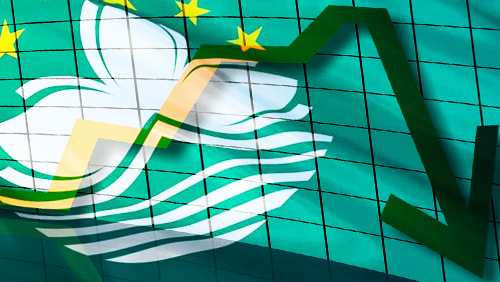Macau’s gambling-driven economy saw its fiscal surplus shrink by 32.1 percent in the first half of 2016, data from the Financial Services Bureau showed.
saw its fiscal surplus shrink by 32.1 percent in the first half of 2016, data from the Financial Services Bureau showed.
From MOP25.42 billion ($3.18 billion) of the same period, Macau’s surplus falls to MOP17.26 billion (US$2.16 billion) from January to June 2016 as public revenue continues to dwindle. The FSB cited Macau’s falling gaming revenue as the culprit behind the fall of its surplus.
On a positive note, the plunge of Macau’s fiscal surplus in the first half of 2016 is much slower compared to the 57.9 percent nosedive it made during the same period last year. Although the government’s surplus is down more than 30 percent year-on-year, it is nearly five times above the MOP3.47-billion (US$ 434.4 million) forecast for the full year.
Meanwhile, Macau government posted a MOP47.85 billion (US$5.99 billion) income at the end of June, 13.5 percent lower than in the prior-year period. Like in its surplus, the government saw a slower drop to its income this year compared to the 33.7 percent freefall of its revenues for the first six months of 2015.
Macau government has sourced at least 82.8 percent of its January to June 2016 revenues from direct taxes from the gaming sector. The government collected a total of MOP39.61 billion (US$4.96 billion) in direct taxes from gaming in the first half of 2016, down by 13.4 percent year-on-year.
The DFS pointed out that Macau’s direct tax continues to narrow as a result of the slumping gross gaming revenue (GGR) of Macau’s casinos. Aggregate GGR for the first six months of 2016 stands 11.4 percent lower than in the same period in 2015, at about MOP107.79 billion (US$13.49 billion).
In June, GGR stood at approximately MOP15.88 billion (US$ 1.99 billion), the lowest monthly tally for Macau casino GGR since September 2010, according to official data.
An increase in government spending is also contributing to the diminishing fiscal surplus of Macau, according to the data. Public spending in the first six months of 2016 reached MOP30.59 billion (US$3.83 billion), up by 2.3 percent year-on-year, the official data show.
The execution rate on budgeted spending stood at 497.5 percent in the first half according to finance bureau data.
In May, credit rating agency Moody’s Investor Service expressed concern over Macau’s falling fiscal and current account surpluses.
“Our expectation of a decrease in gaming revenues this year and next suggests that Macao’s economic, fiscal and external metrics will likely weaken considerably from prior robust trends. This puts overall sovereign credit risk at levels more consistent with an Aa3 rating,” Moody’s said. “We expect the economy will continue to contract during 2016 and 2017, although the pace of decline may ease.”
Macau’s Secretary for Economy and Finance Lionel Leong Vai Tac has expressed optimism that Macau’s struggling gaming market has already bottomed out despite posting almost two years of continuous declines in monthly gambling revenues.